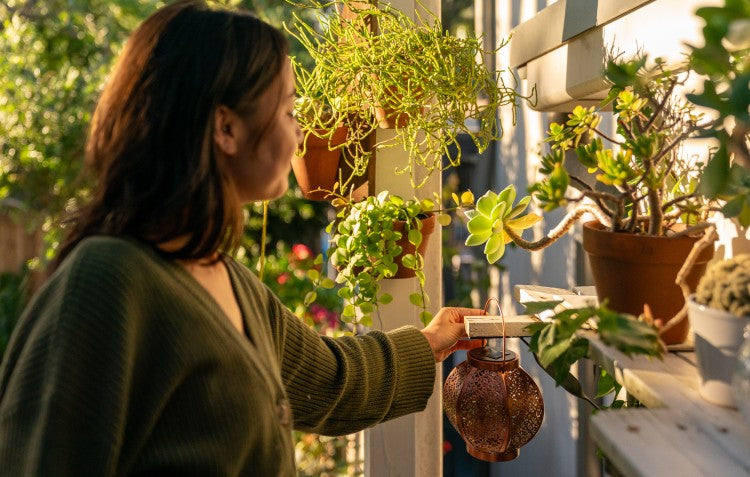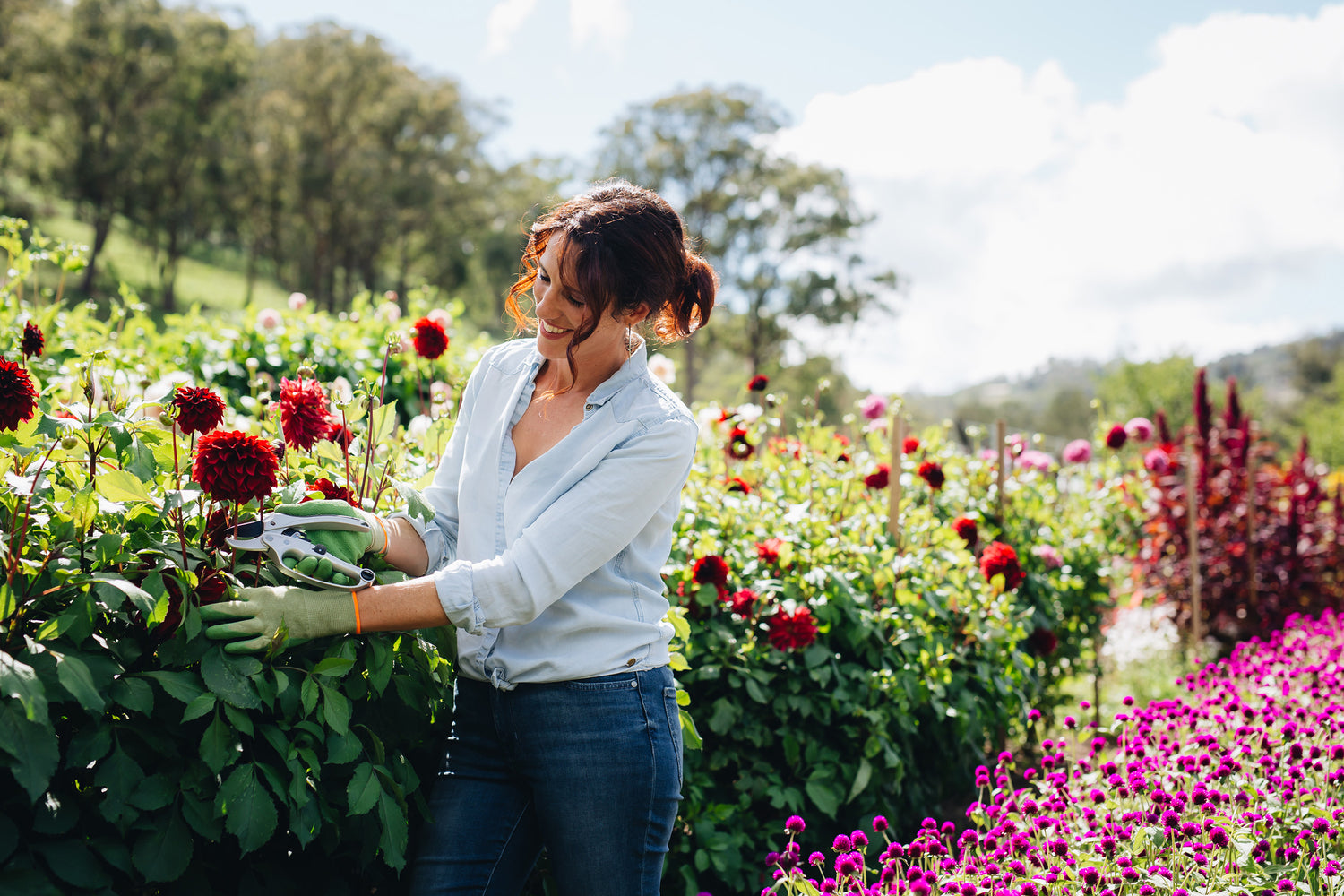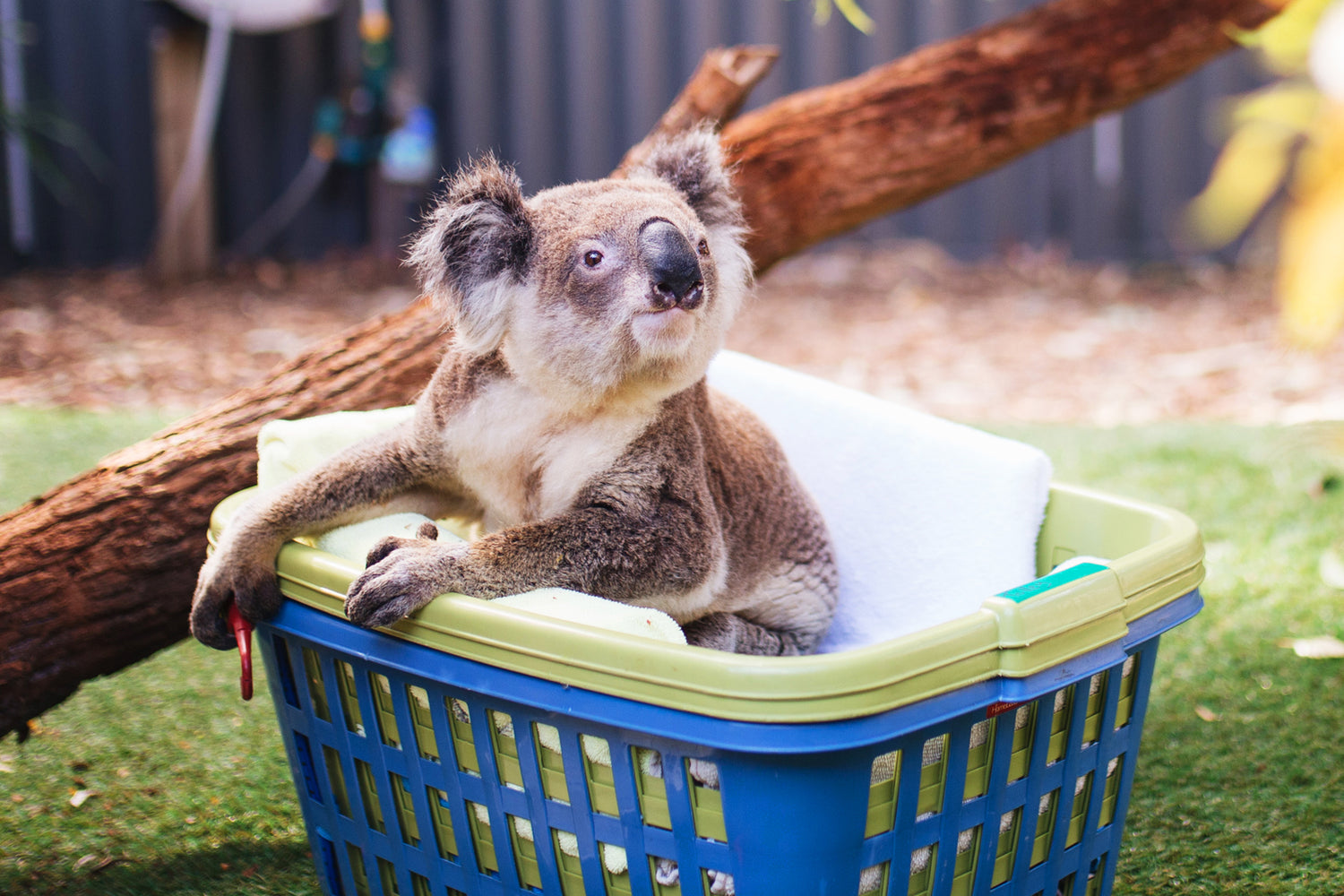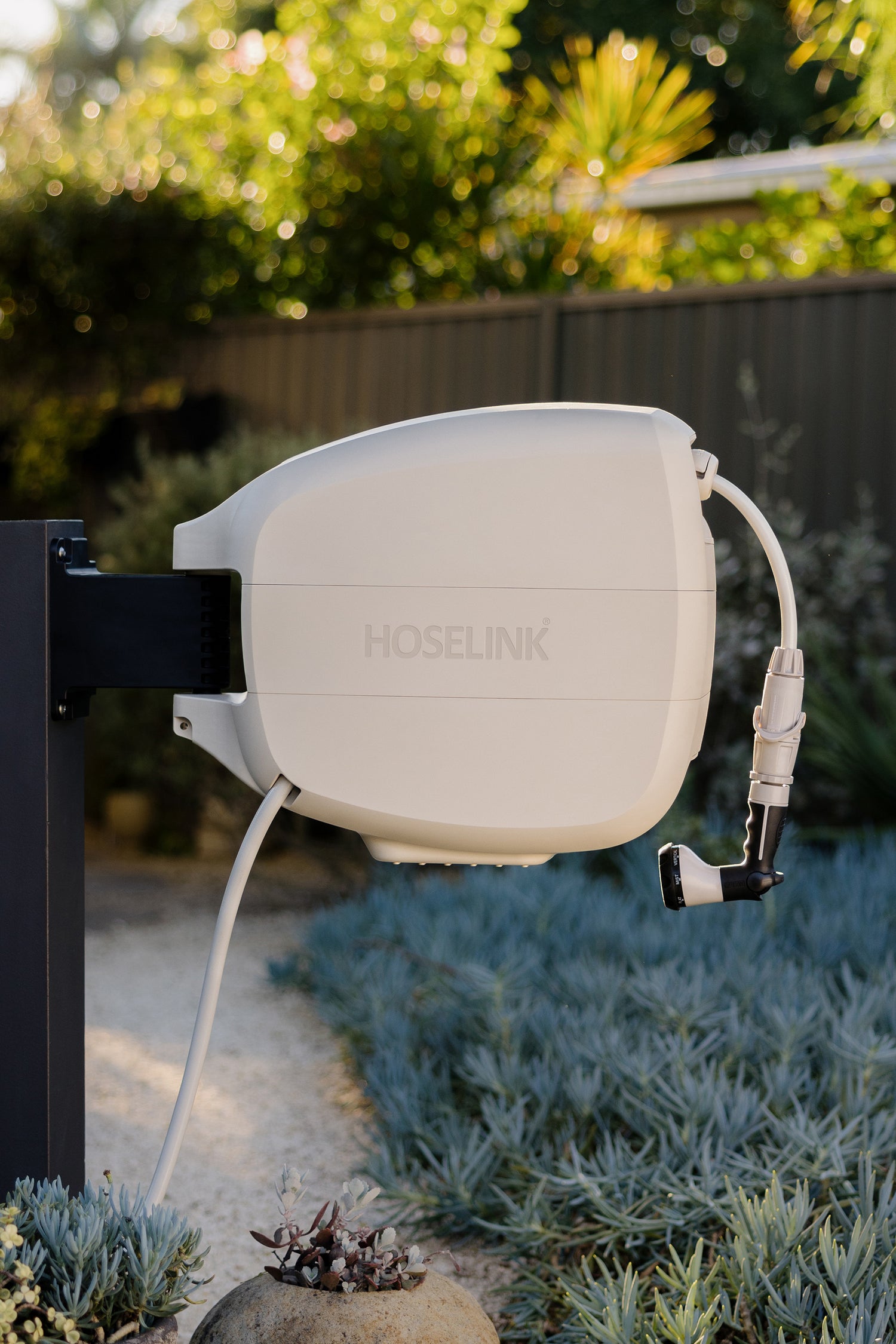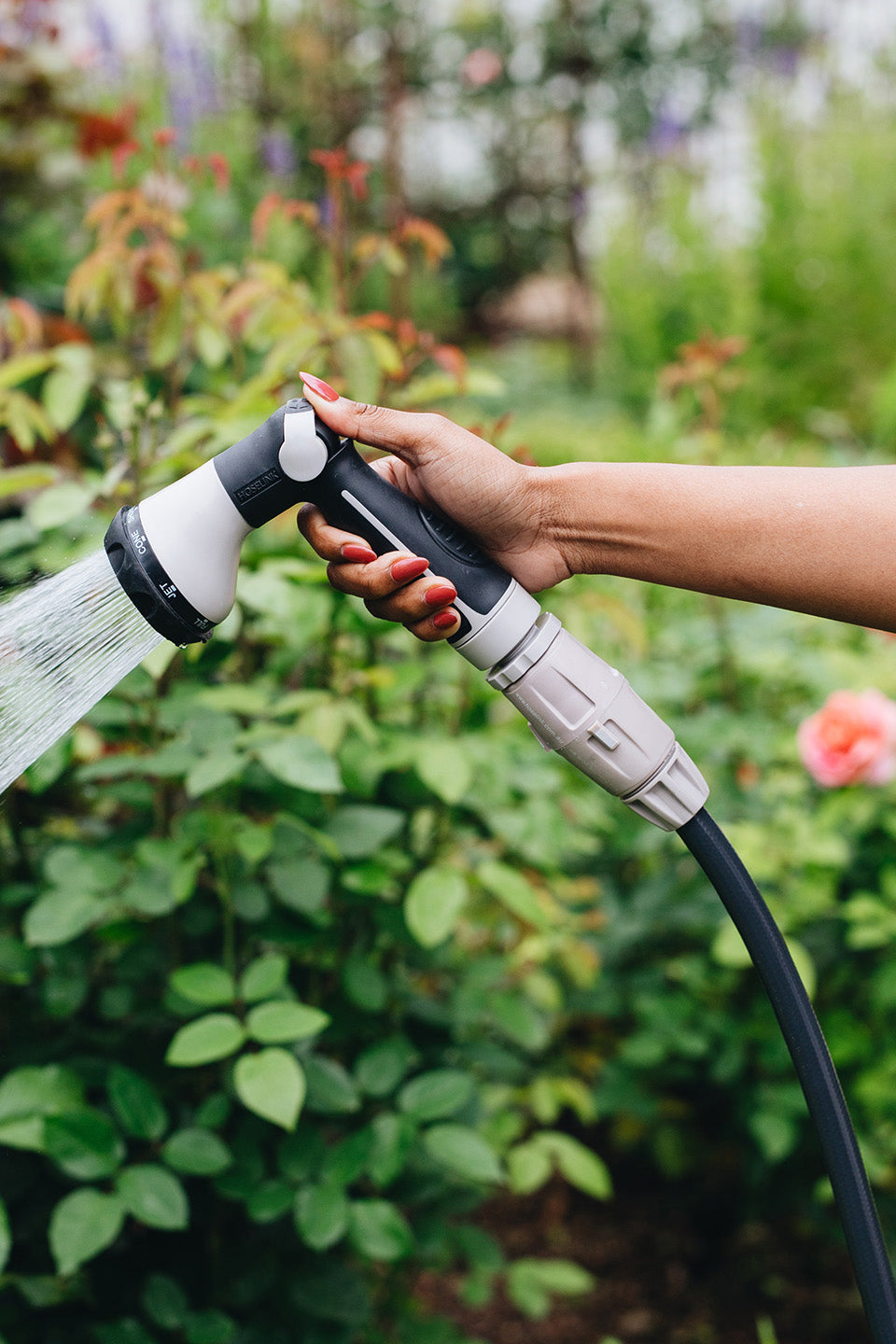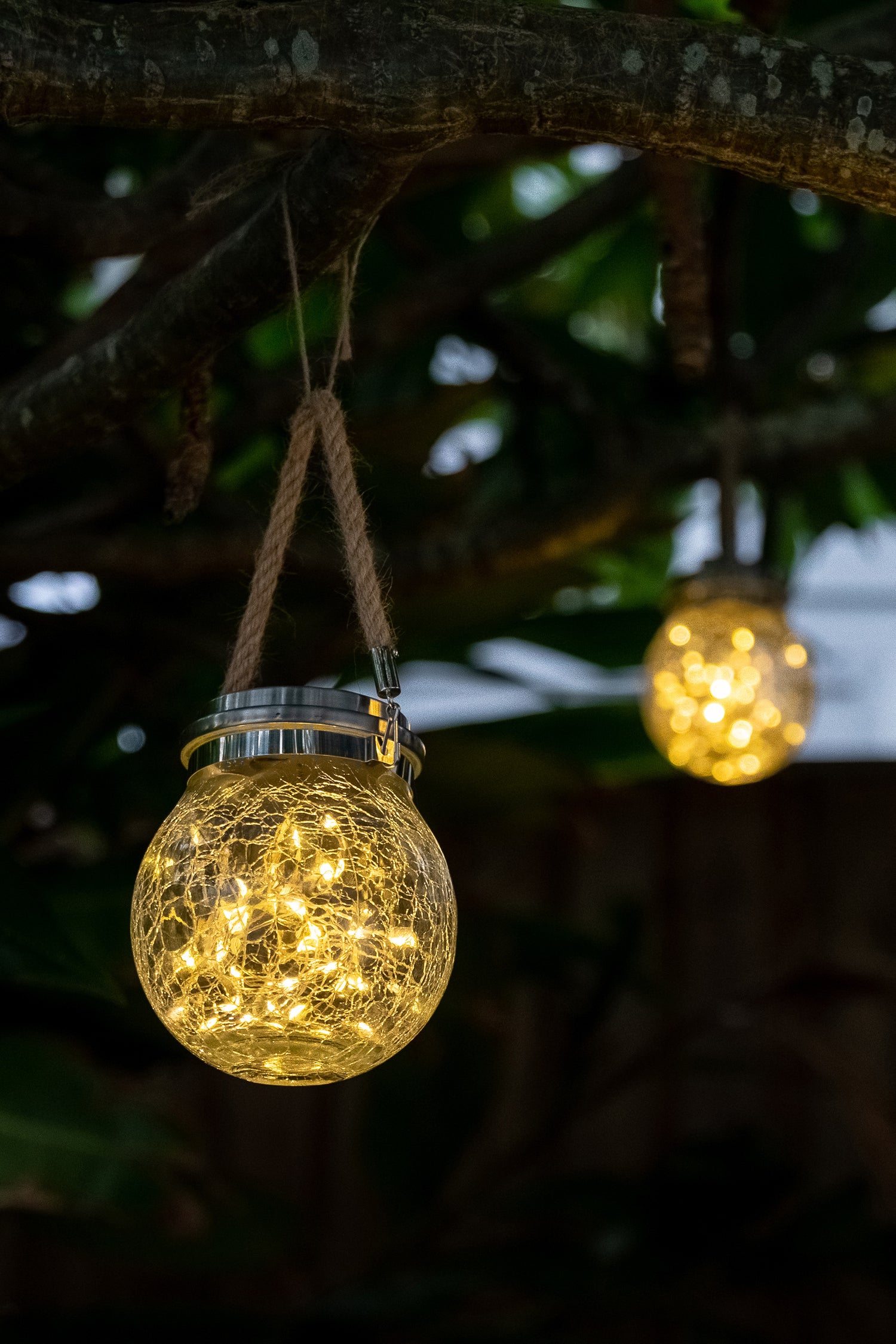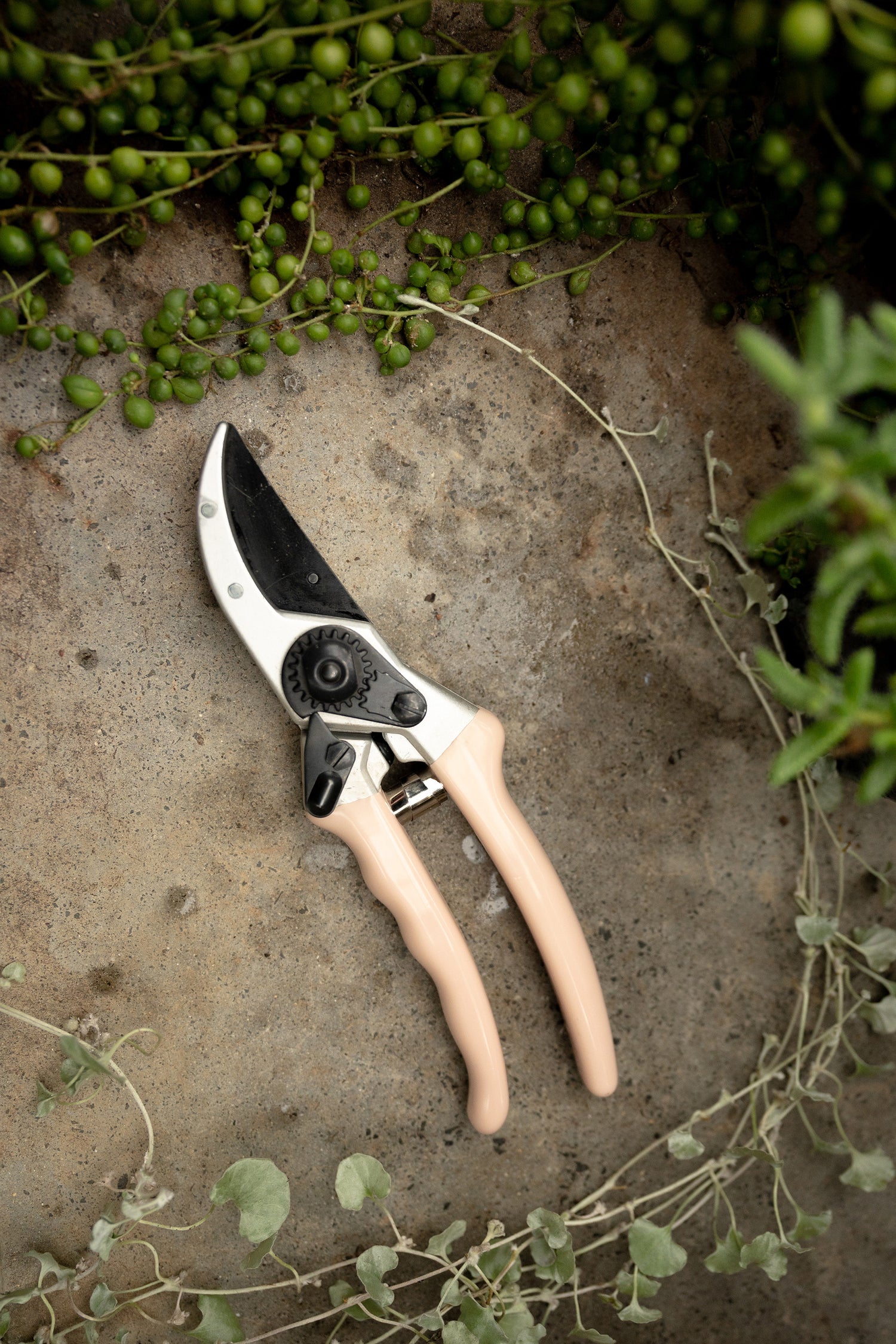In a world where we’re always connected and plugged in to the latest news alerts, work emails and social feeds, switching off and reconnecting with nature is sometimes the most powerful thing we can do for our mental health.
That doesn’t have to mean a complete digital detox or a weekend retreat in the wilderness. It can be as simple as tending to a houseplant, feeling the grass between your toes or experiencing the quiet satisfaction of bedding in a new veggie patch. Everyday moments that bring you back to earth and remind you that life exists beyond your smartphone screen.
Six reasons to cultivate calm
With R U OK? Day (September 11th) and World Mental Health Day (October 10th) just around the corner, now is the perfect time to pause, check in with yourself, and remember the significant role gardening can play in supporting your mental wellbeing.
From reducing stress to promoting mindfulness, here are some of the most compelling reasons to spend more time outdoors.
1. Stress-busting, mood-boosting.
Spending time in green spaces (or even just tending to house plants) has been shown to lower levels of the stress hormone “cortisol”. In fact, gardening is the perfect antidote to stress, as increased exposure to sunlight and fresh air boosts serotonin, an important mood-stabilising hormone.
2. Refocusing the mind
Unlimited screen time and constant stimulation have trained our brains to jump from one task to the next, meaning we only really ever achieve a surface level of focus. In contrast, spending time outdoors has been linked to improved cognitive function and mental clarity – pulling weeds, pruning shrubs or planting seeds requires a single-mindedness that encourages the brain to reset and refocus. For that small amount of time, nothing else matters.
3. Nurturing self-esteem
These days, it’s common to tie our self-worth to external markers – outward appearances, job titles, financial milestones. But we believe there’s no greater sense of accomplishment than watching something you’ve tended with care and patience thrive before your eyes. Whether that’s a blooming flower you’ve nurtured from seed, a perfectly manicured lawn that restores your sense of order, or a wonky homegrown vegetable you can turn into tonight’s dinner.
4. Move your body, still your mind.
Gentle activities like digging, planting, and carrying tools may not feel like “physical exercise”, but when it comes to moving your body, every little counts. Physical movement is an important ally for emotional wellbeing. It releases endorphins to lift your mood, provides a healthy outlet for tension and worry, and even helps to regulate your sleep cycle – which is essential for emotional balance and cognitive function.
5. A sense of stability
When the world feels chaotic, small, steady rituals like watering, weeding, or pruning can provide a grounding sense of purpose and bring you back to what matters. The natural rhythm of plant cycles and the comforting predictability of the seasons offers stability and structure, which can be especially helpful for those navigating depression, periods of overwhelm or craving a little more control in their day to day.
6. Deepening connections
Whether it’s sharing the fruits of your labour, joining a community garden, or simply creating a peaceful space to spend time with loved ones, gardening is not only a way to reconnect with yourself, but a bridge to the people around you. And when life feels like it’s getting on top of you, even the smallest moments of connection can be a reminder that you don’t have to carry everything alone.
No garden? No worries.
Even without an outdoor space of your own, you can still experience the mental health benefits of gardening. Join a local gardening co-operative or urban garden project, transform your working environment or create your own indoor utopia at home. In fact, Australian studies have shown that potted plants alone can significantly reduce air toxins, while research in Europe has revealed that having plants in the office can lower ‘sick leave’ by as much as 60%.
With just a bit of creativity, you can bring nature into your indoor spaces and nourish your everyday wellbeing as a result. Here’s how:
The healing power of herbs
Ordinary herbs boast a variety of therapeutic and practical properties, and creating your own windowsill garden offers easy, instant access to all of them. No need to plant anything fancy – common garden herbs like coriander support digestion and help reduce blood pressure, while basil, known for its adaptogenic properties, helps the body manage stress.
For centuries, mint and chamomile have been brewed into relaxing herbal teas and used to reduce anxiety and promote better sleep. Just grow them in a sunny spot and steep the leaves or flowers in boiling water to release the full calming effect.
The joy of a mini terrarium
Terrariums are more than just stylish decor – they actively improve indoor air quality by filtering the air, absorbing carbon dioxide, and releasing oxygen (especially helpful in urban environments like city apartments or offices).
While they’re relatively low maintenance, the reassuring routine that comes with caring for your own miniature ecosystem can have a profound impact on your wellbeing, reducing stress, elevating your mood and adding a sense of calm to your indoor space.
Happiness in a pot
Similarly, having multiple pot plants dotted around your home not only looks great, it can significantly benefit your mental health, by creating a calming, natural environment. Choose those with air-purifying properties, like spider plants, snake plants, aloe vera or peace lilies, to improve indoor air quality and contribute to a healthier, more breathable space.
Indoor plants offer the same sense of calm, reward, and connection as caring for a garden – just in a smaller, pot-sized format. The mindful practice of tending to your pot plants grounds you in the present moment and offers a peaceful escape from the hustle and bustle of daily life. Trust us.
Dig deep and unearth the benefits
We hope this blog has served as a gentle reminder to slow down, stay present, and find joy in nature. Remember, when life feels overwhelming, it’s often the smallest acts – like planting herbs on your balcony, tending to a garden bed, or simply being outdoors with loved ones – that can make the biggest difference.
Let this year’s R U OK? Day and World Mental Health Day be your cue to take a breath, get your hands dirty and reconnect with what matters. Because in caring for your garden, you're also caring for yourself.

